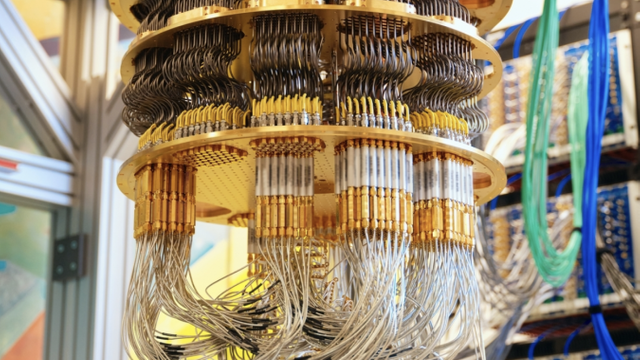Quantum Leap Forward: Google's Willow Chip and the Future of Computing
In a move straight out of a sci-fi fan's wildest dreams, Google has just unveiled a quantum computing marvel named "Willow," which can solve computational conundrums in under five minutes - problems that would otherwise have the world's best supercomputer calculating for approximately 10 septillion years. Yes, you read that right, 10 septillion years, a number so large it makes even the age of the universe seem like a brief coffee break. But what does this mean for the tech market, and should we be bracing for a sell-off?

The Breakthrough:
Google's Willow chip isn't your average piece of silicon. It boasts 105 qubits, the quantum version of bits, which can exist in multiple states simultaneously thanks to the quantum phenomena of superposition and entanglement. This chip isn't just about speed; it's about redefining what's computationally possible. It's like giving a librarian who's used to handling one book at a time a room full of books that can all be read at once.
The real kicker? Google claims this chip has achieved something called "exponential suppression of errors," where the more qubits you add, the less error you get. It's a bit like saying, "The more cooks we have in this kitchen, the less likely we are to burn the dinner." This error correction is crucial because quantum computers are notoriously finicky, with quantum states being as delicate as a house of cards in a hurricane.
Market Reaction:
Now, onto the big question: Is this triggering a sell-off? The immediate reaction in the tech and crypto markets has been mixed. On one hand, the tech sector sees this as a confirmation of the quantum computing arms race, where Google has just taken the lead. Stocks of tech companies involved in quantum research might see a surge due to the potential of future applications, from drug discovery to unbreakable encryption.
However, there's a flip side. This breakthrough might make investors in traditional computing and cybersecurity systems nervous. If quantum computers can solve problems in minutes that take millennia for classical computers, what happens to all those investments in supercomputers? Are we looking at a future where today's encryption methods are as secure as a diary with a broken lock? This could prompt a sell-off in companies heavily invested in current computing paradigms.
The Impact:
Scientific Research: Fields like materials science, chemistry, and physics could see a revolution. Imagine simulating molecular interactions at a quantum level in real-time, speeding up the discovery of new materials or drugs.
Cryptography: The looming threat to current encryption standards could force a rapid pivot towards quantum-resistant algorithms, causing a seismic shift in cybersecurity.
AI and Machine Learning: Quantum computing could supercharge AI, making models that are currently too complex to compute in reasonable time suddenly feasible.
Looking Ahead:
While Google's Willow chip is a monumental step, we're still in the "Holy Grail" stage of quantum computing - where the idea is more promising than the practical application. There's a long road from lab experiments to commercial products.
Conclusion:
Will there be a sell-off? Possibly, but more likely in sectors directly threatened by quantum advancements. However, the broader tech market might just see this as a sign of innovation, potentially driving investment into companies at the forefront of this tech evolution.
For now, Google's Willow chip is more of a herald of change rather than the change itself. It's like watching a caterpillar form a chrysalis; we know something magnificent is coming, but we're yet to see the butterfly. So, keep your quantum eyes peeled, and remember, in the tech world, today's breakthrough could be tomorrow's standard.
Note: This article is based on current news and analyses from sources discussing Google's quantum computing advancements.